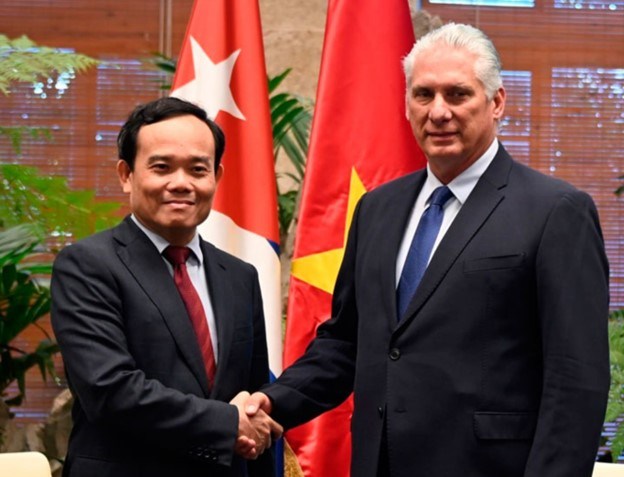
The latest donation will provide each Cuban with just under a third of a pound of rice under the country’s universal rationing system.
By 14ymedio
HAVANA TIMES – Cuba and Vietnam agreed on Monday to a protocol that covers new agreements to strengthen bilateral cooperation in numerous sectors of the economy, trade, investment and other areas, such as education and science. The document is the result of the 41st Intergovernmental Commission for bilateral economic and scientific-technical collaboration, finalized by the first deputy ministers of Vietnam, Tran Luu Quang, and Cuba, Ricardo Cabrisas Ruiz.
“The occasion is propitious to reiterate the most sincere gratitude from the Communist Party of Cuba for the Government for Vietnam’s donation of 1,640 tons of rice, which will soon arrive in our country,” said Cabrisas, who is also head of Foreign Trade and Foreign Investment.
The arrival of the product has been celebrated by all the senior officials of the Government, starting with the Prime Minister, Manuel Marrero. “I want to thank you on behalf of the Party, the Government and the people of Cuba for the announcement of the new donation of rice for our country. It is an issue that has a lot of impact for the people in this complex moment that we are going through and is also part of that sensitivity that the Vietnamese leaders have had to contribute to the food sovereignty of our country,” he added during his meeting with Tran Luu Quang.
[The latest donation will provide each Cuban with just under a third of a pound of rice under the country’s universal rationing system.]
Also in the meeting with the president, Miguel Díaz-Canel, reference was made to the donation, as well as to a credit granted for the purchase of more rice – “a very important gesture for us,” he said – which has guaranteed the distribution of the rice for several months through the family rations.”
Although not enough to solve the demand for a fundamental product in the Cuban diet, free shipments of Vietnamese rice are common. In 2023, the official press announced at least three shipments, one of 5,000 tons in May, another of 2,000 in September and 1,200 at the end of October, in addition to the cooperation for grain production until 2025.
However, the collaboration of Vietnam’s technicians in the municipality of La Sierpe, in Sancti Spíritus, failed. The Asian professionals, who had come to Cuba 20 years earlier with equipment and machinery, never achieved the expected returns and ended up departing the Island in mid-2022, leaving the project mortally wounded.
Despite this, Díaz-Canel praised “the sensitivity and support of Vietnamese entrepreneurship, which has bet on its business in Cuba, despite all the financial difficulties” and reflected on its common history. “We are two nations that have heroically confronted our enemies; we are two nations committed to socialist construction; we are two nations that respect, love and admire each other,” the president said.
The rest of the agreements extend to all kinds of areas: from agriculture and fishing to biotechnology, health, construction, transport, finance, science, technology and environment; from culture, tourism, sports and education to industry, energy and mines; from information, communications, higher education and finance to customs, work, social security and justice.
In addition, it was agreed to promote the development of Vietnamese investment projects in Cuba, mainly those established in the Mariel Special Development Zone (ZEDM).
Cabrisas highlighted the purpose of increasing commercial exchanges with Vietnam on a “mutually beneficial” basis and contributing so that Vietnamese companies invest in priority sectors, such as agribusiness, tourism, and renewable energies.
Translated by Regina Anavy for Translating Cuba
Read more from Cuba here on Havana Times.




